Parking is stressful enough without the added fear of a fine, and over the past two years, councils across Australia have only ramped up the penalties and enforcement of the regulations. In NSW, more than 822,000 ticketless fines were issued in 2024, up sharply from 551,000 in 2023, with total fines climbing by over 110,000 in just one year. Brisbane City Council also stung drivers with almost 171,000 fines worth $34.35 million in 2024, slightly higher than in 2023, though around 5,976 were withdrawn after challenges. Clearly, too many motorists are either not aware of the parking rules or do not care to follow them.
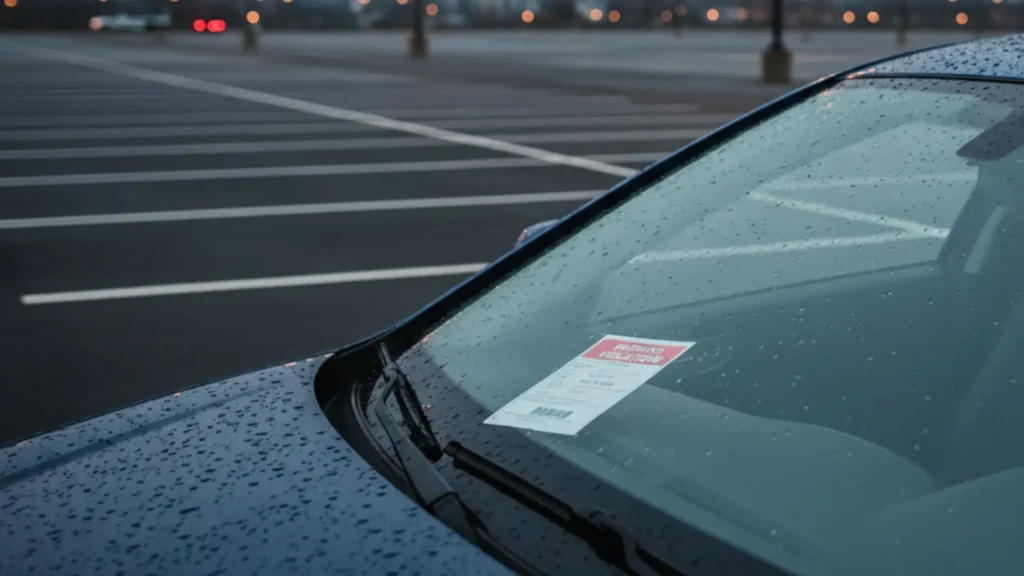
Well, the government bodies plan to bring down the number of parking violations by increasing the punishment for them. From 1 January 2025, illegal parking fines have skyrocketed to $789, a 65% increase from $477. Authorities say it’s about safety and congestion, but for drivers, it means even a minor mistake can burn a serious hole in the pocket.
So, what are the most common parking fines in Australia, and how can you avoid them? Let’s break it down.
1. Parking on yellow lines
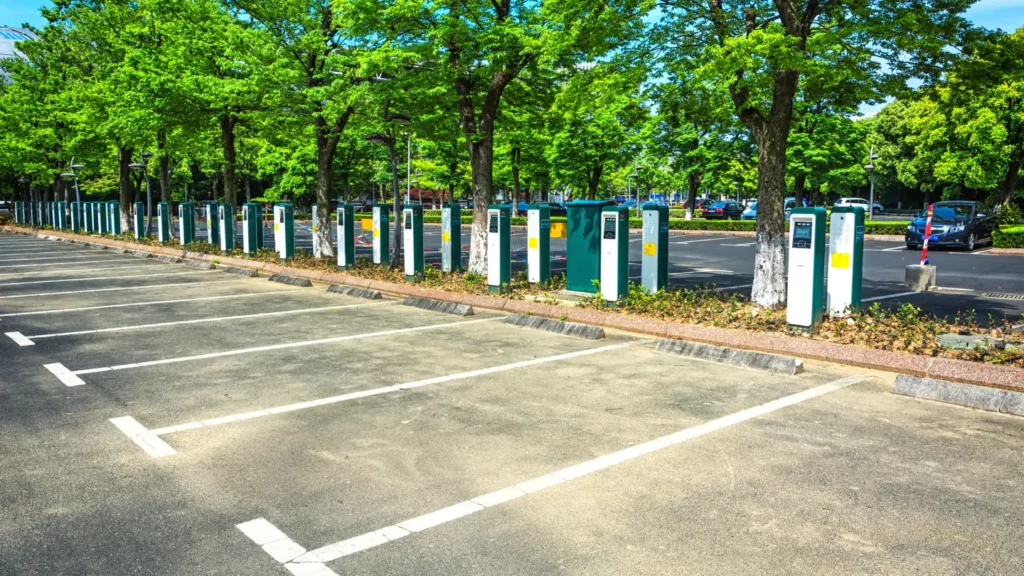
Yellow lines painted along the kerb are one of the most misunderstood signs on Australian roads. Unlike regular parking signs that spell out restrictions, a yellow line needs no extra explanation; it’s a hard “no stopping” rule.
These markings are often placed in high-traffic areas, narrow streets, or spots where emergency vehicles may need access. In NSW, stopping on a road marked with a continuous yellow edge line attracts a $330 fine and 4 demerit points, while in Brisbane, the same offence carries a $333 fine and 2 demerit points.
How to avoid it?
Always check the kerb before you pull over. If you spot a yellow line, keep driving until you find a legal space to stop and park.
2. Stopping in bus zones
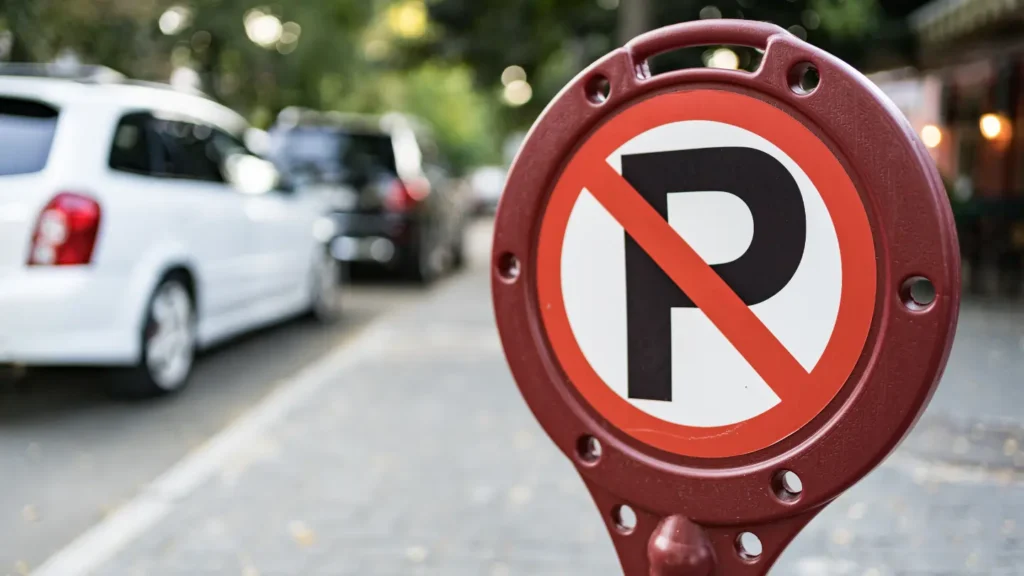
It might be tempting to think that parking in a bus stop late at night or on a quiet Sunday is harmless, but the rules apply 24/7 unless signage indicates otherwise. Bus zones exist to provide drivers of large vehicles with enough space to manoeuvre safely, and blocking them can hold up entire routes.
As of 1 July 2025 in NSW, stopping in a bus zone, whether it’s a clearway, transit lane, or standard bus zone, carries a fine of $330 and 4 demerit points. If your car is towed, the inconvenience can cost you even more in release fees.
How to avoid it?
Look out for bus stop signs, shelters, or painted zones on suburban streets. Give yourself plenty of buffer space so you’re not encroaching even slightly on the designated zone. Take the extra time to find a suitable spot, don’t risk the fine.
3. Misusing loading zones
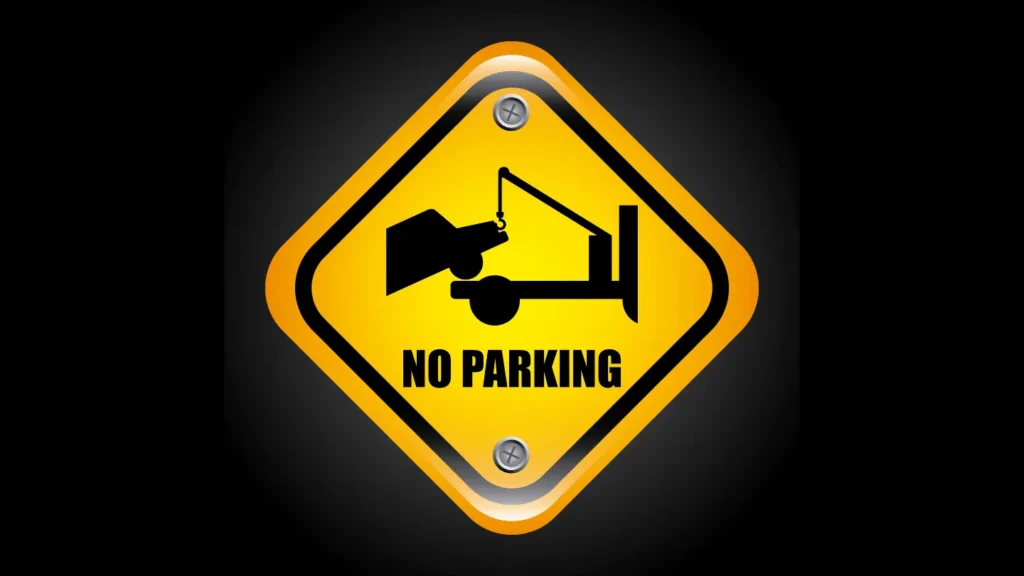
Loading zones are a grey area for many drivers. While they are designed for deliveries, they’re not strictly off-limits to regular cars. In most cases, you’re allowed to stop briefly to drop off or pick up passengers, or to load goods. However, there are strict time limits, and some zones are reserved exclusively for commercial vehicles.
In NSW, overstaying or stopping in a loading, truck, or works zone can result in a $235 fine and 3 demerit points, depending on the type of zone and duration of stay.
How to avoid it?
Always check the signs for time limits and permitted vehicle types. If it’s restricted to commercial vehicles, don’t risk it. And remember, “just two minutes longer” can still mean a fine.
4. Parking in disabled parking without a permit
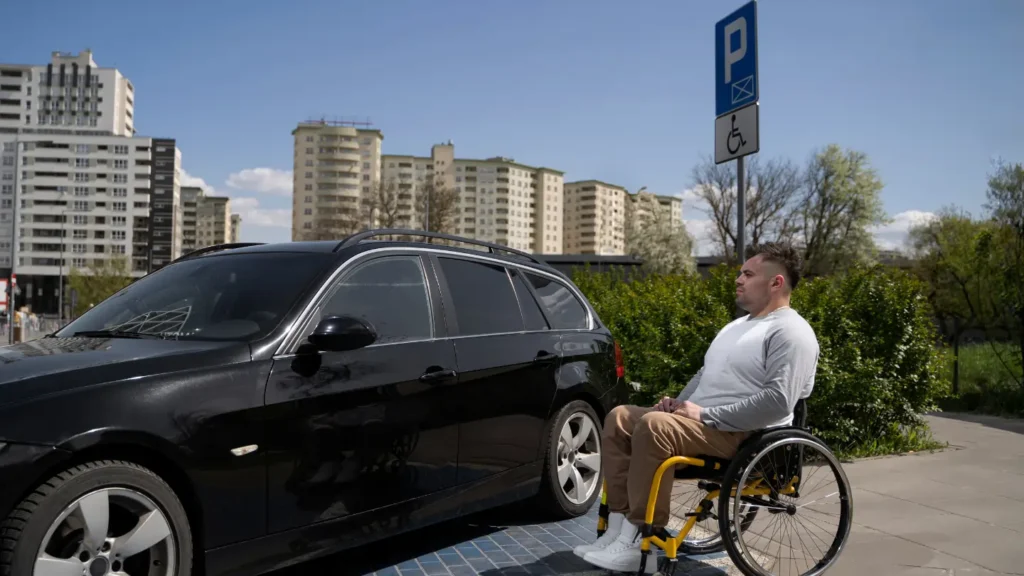
Of all the common parking offences, this is the one taken most seriously. Spaces reserved for drivers with disabilities are vital for accessibility, and councils enforce them strictly. In NSW, parking in a disabled space without proper authority can result in a fine of $704 and 7 demerit points. That’s one of the heaviest penalties, and for good reason.
How to avoid it?
This one’s simple, unless you have a valid permit, steer clear. It’s not just about the money, it’s about respecting those who genuinely need the space.
5. Other sneaky traps drivers fall into
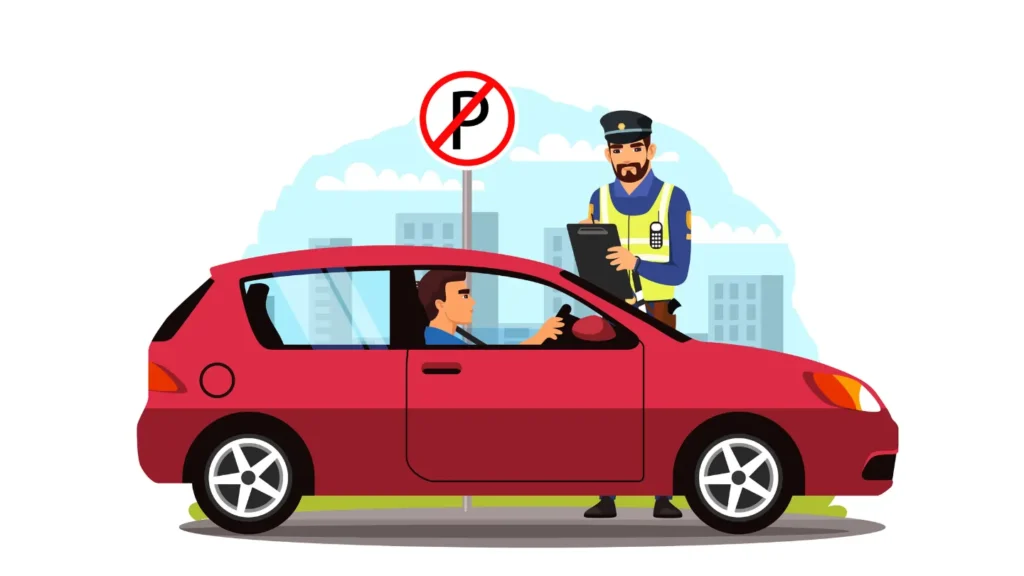
Beyond these top offenders, there are a few other situations that frequently trip drivers up:
- Overstaying metered parking – Even being a few minutes late can be enough for an inspector to issue a fine.
- Blocking driveways or intersections – Parking too close to corners, crossings, or private driveways can result in penalties.
- Ignoring temporary restrictions – Event clearways, roadworks, or festival zones may override usual parking rules. If you don’t notice the signage, you could end up fined or towed.
Why is avoiding fines getting tougher?
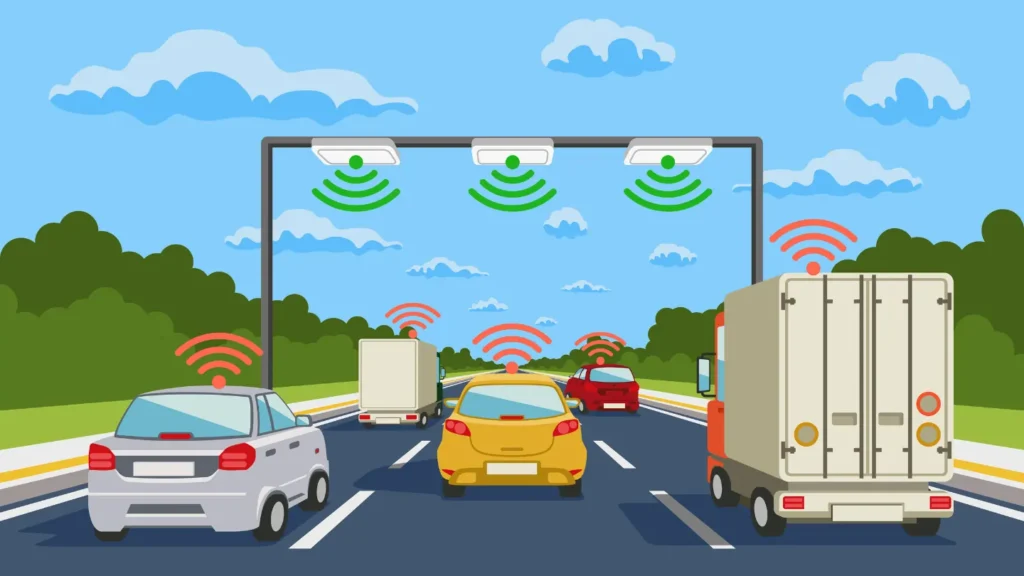
It’s worth noting that councils are becoming more tech-savvy in enforcement. Many are now using AI-powered licence plate recognition and smart cameras to detect illegal parking in real time. This reduces human error but also means the “chances of getting away with it” are slimmer than ever.
That makes it even more critical for drivers to understand the rules and avoid risky parking altogether.
Final word
Parking fines aren’t just about generating revenue; they’re about maintaining traffic flow and ensuring accessibility and safety. But for everyday drivers, the result is the same: one small mistake can become a costly lesson.
By paying closer attention to kerb markings, signage, and time limits, you can save yourself hundreds of dollars and a lot of frustration. And when in doubt, take the extra few minutes to find a legal space; your wallet will thank you later.
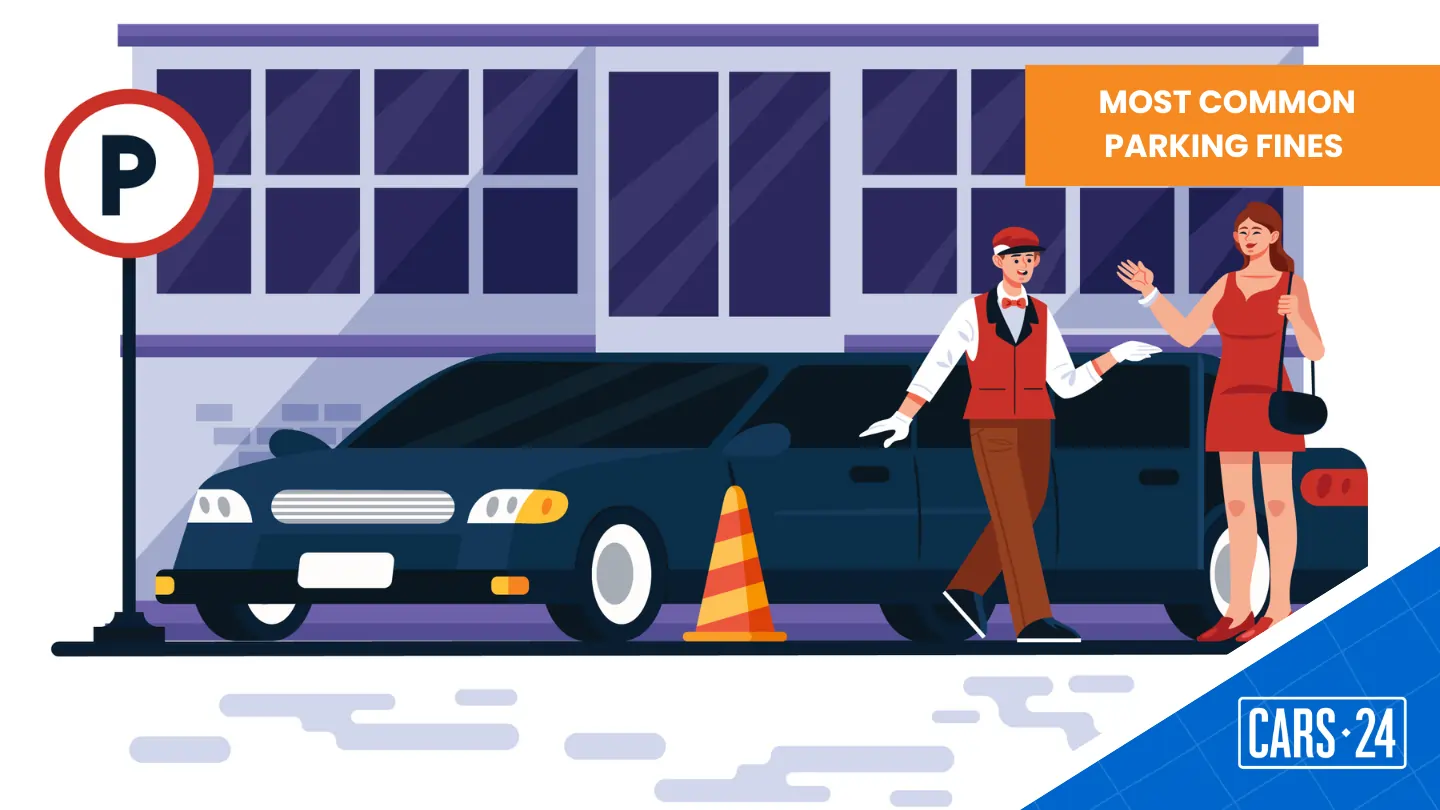
Comments
New Comment